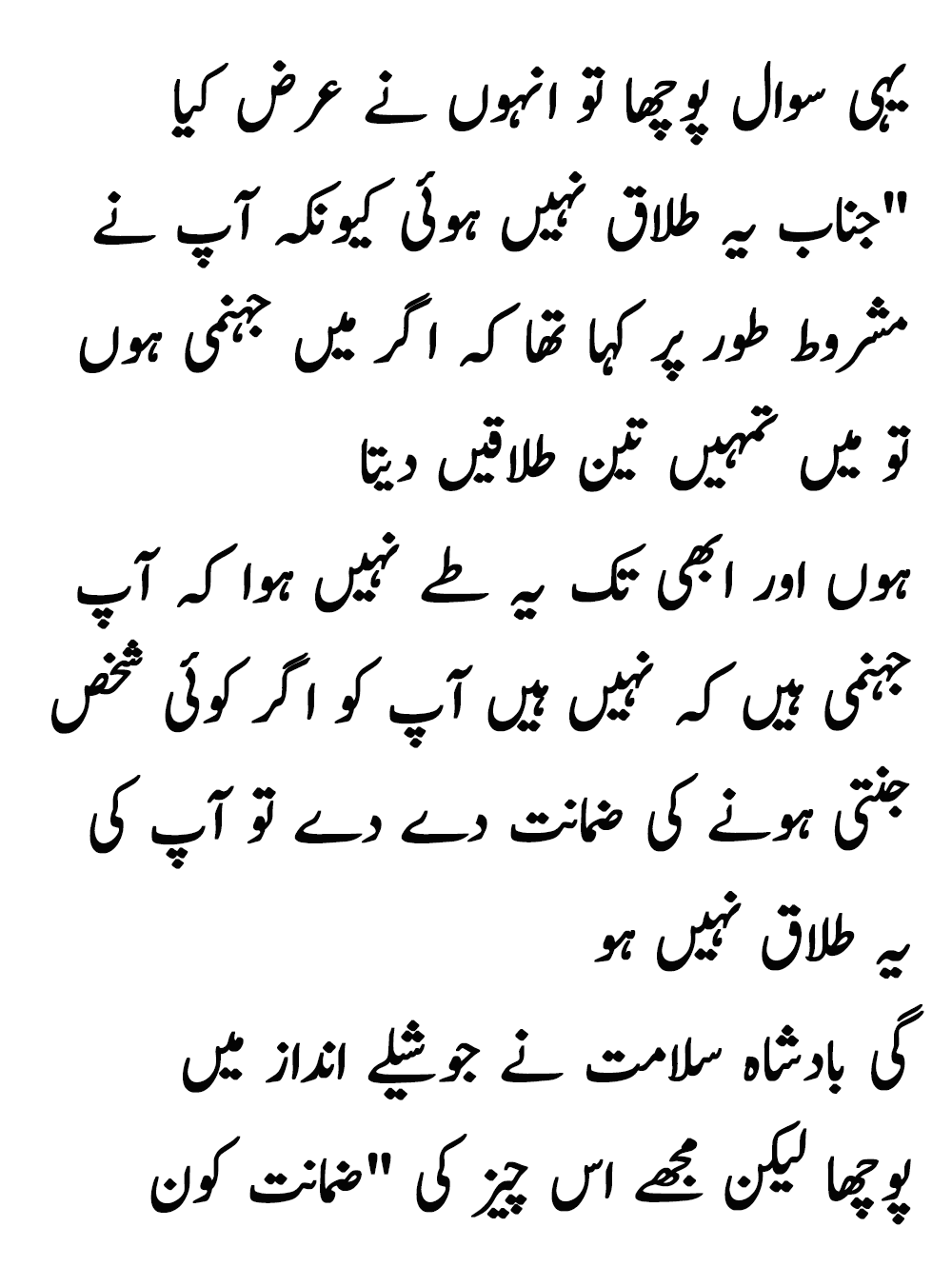The Fascinating Tale of King’s Divorce
In the times of Imam Shafi’i, an incident occurred that not only captured the attention of the people but also became a significant concern in the realm of Islamic jurisprudence. It was during the reign of a renowned caliph that an unprecedented event unfolded, leading to a series of unforeseen consequences. Let’s delve into the intriguing narrative that perplexed the courts and scholars of that era.
The Astonishing Royal Conversation That Led to a Controversial Divorce
Sitting with his queen, the king, in a light-hearted banter, playfully inquired, “How do you find my appearance?” The queen, the dearest consort of the king, responded in jest, “To me, you appear infernal.” These words, uttered in jest, triggered a sudden fury in the king, who retorted, “If I am infernal, then I grant you three divorces.”

The Unraveling of the King’s Impulsive Utterance
Witnessing the distress of the queen, the king soon realized his impulsive error. The following day, he summoned all the eminent scholars, jurists, and imams of the realm, seeking clarification regarding the legitimacy of his utterance and its consequences. Despite the unanimous consensus among the gathered scholars that the divorce had indeed taken place, a young, thoughtful scholar maintained his silence.
The Thought-Provoking Discourse That Altered the Outcome
When the inquisitive king directed the same query to the young scholar, he responded with a contemplative inquiry, “Your Majesty, has there ever been a time in your life when you were inclined towards a wrongdoing but refrained from it solely out of fear of Allah?” The king, with a sense of recognition, acknowledged the occurrence and narrated a poignant incident from his life.
The Profound Lesson of Piety and Mercy
In a moment of vulnerability, the king recounted an incident where he had encountered a maid cleaning his chamber. Struck by her exquisite beauty, he approached her with ill intentions, only to be halted by the maid’s emotional plea, “O King, fear Allah; He is more powerful than you.” Recalling this incident, the king confessed how the fear of Allah alone restrained him from committing a transgression.
The Enlightening Declaration of the Young Scholar
Upon hearing the king’s testimony, the young scholar assured the king, “Your Majesty, I can vouch for your place in Paradise, on the condition that I ask you one question. If your answer is affirmative, I shall present you with a guarantee of attaining Paradise.” Encouraged by the assurance, the king eagerly awaited the scholar’s query.
The Transformative Question and the King’s Redemption
Posing his question, the young scholar asked, “Have you ever refrained from a sinful act solely due to the fear of Allah, forsaking your own desires?” With a sense of humility, the king acknowledged the occurrence, acknowledging the power of piety in restraining one’s actions.
The Prophetic Words of Assurance and Redemption
Enlightened by the young scholar’s sagacious question, the king understood the true essence of repentance and righteousness. With the recitation of verses from Surah An-Naziat, the atmosphere was filled with a profound sense of spiritual enlightenment, emphasizing the significance of God-consciousness and the ultimate assurance of redemption for those who strive to overcome their innermost desires for the sake of the Divine.
Embracing the Teachings of Forgiveness and Reverence
This historical account not only emphasizes the significance of piety but also highlights the importance of self-restraint and seeking forgiveness. It serves as a testament to the transformative power of repentance and the redemptive nature of genuine remorse. May this timeless tale continue to guide us towards the path of righteousness and compassion.












